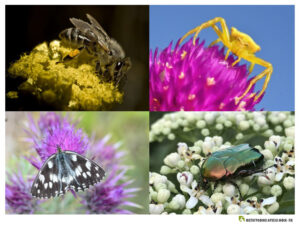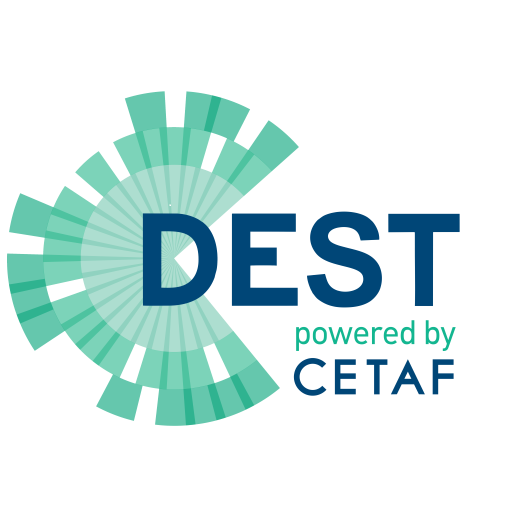
DESCRIPTION
Eight prominent experts mainly from the University of Florence and its Natural History Museum as well as from other institutions of Italy, will provide this unique opportunity to graduates and young researchers to understand the role of taxonomy of pollinators in monitoring and conservation. In parallel trainees will deepen their knowledge on how to organize and do field research on pollinators, set and identify the collected material and prepare a report on the results of the field study.
More specifically trainees will:
- Learn the most recent efforts made in Italy and EU level for standardising monitoring and conservation of pollinators
- Understand the importance of taxonomy and identification of specimens in providing high quality monitoring data
- Understand the most advanced techniques needed to sample the main groups of pollinators, in order to allow integrative taxonomy (preserving both morphological structure and DNA)
- Observe, directly in the field, the main standardised monitoring techniques (pan traps, transects, pit fall etc).
- Learn the importance and role of pollinating plants.
DAILY PROGRAM and TRAINERS
Monday 19/06/2023
09.00 – 10.00 Registration and presentation
10.00 – 13.00 Module 1: The recent effort of the Italian Ministry to monitor and protect pollinators. The solutions adopted to cope with taxonomic limitations. Systematics of diurnal Lepidoptera and the role of DNA-barcoding libraries. Leonardo Dapporto
13.00 – 15.00 Lunch
15.00 – 17.00 Module 2: Diptera taxonomy: some case studies. Antonio Belcari
Tuesday 20/06/2023
10.00 – 12.00 Module 3: Systematics of Coleoptera and how to prepare the specimens. Luca Bartolozzi
12.00 – 15.00 Lunch
15.00 – 18.00 Visit to Parco del Mensola for sampling
Wednesday 21/06/2023
09.00 – 10.30 Module 4: Pollinating plants. Lorenzo Cecchi
10.30 – 12.00 Module 5: Arachnida with focus on Araneae. Malayka S. Picchi
12.00 – 14.00 Lunch
14.00 – 16.00 Module 6: Monitoring Apoidea. Keys for their collection and identification. Marco Bonifacino
16.00 – 17.00 Preparation of the material with DNA friendly techniques
Thursday 22/06/2023
10.00 – 12.00 Module 7: Invasive arthropod species. Elena Tricarico/Giuseppe Mazza
12.00 – 15.00 Lunch
15.00 – 18.00 Visit to Olmo (Fiesole) for sampling
Friday 23/06/2023
9.00 – 13.00 Recap with preparation of the specimens and report
Course duration: 5 working days, 34 hours in total
Dates of Training period(s): 19-23 June 2023
Course location: Botanical Garden – Florence University (or Villa Galileo)
Florence, Italy
Course language: English
Target audience: Graduated, MSc and PhD students, as well as early career researchers
Mode of trainees’ assessment: Test
Participant quota (min and max number of trainees): Min 8 – Max 10 trainees
Fee: 250 Euros (including: teaching and lab materials, transports, lunches)
Payment of fees
Registration is free.
Only the trainees who will be selected to participate the course will be requested to pay the fees. This will happen after the registration deadline.
Registration deadline
31 March 2023
Types of training
Theoretical modules: seven (7) lectures face to face on different taxonomic groups of pollinators and one (1) lecture on pollinating plants
Field work: two (2) field work sessions for a total of 6 hours
Lab work: two (2) lab work sessions for a total of 4 hours
Training Course learning outcomes
- Learn the most recent efforts made in Italy and EU level for standardising monitoring and conservation of pollinators
- Understand the importance of taxonomy and identification of specimens in providing high quality monitoring data
- Understand the most advanced techniques needed to sample the main groups of pollinators, in order to allow integrative taxonomy (preserving both morphological structure and DNA)
- Observe, directly in the field, the main standardised monitoring techniques (pan traps, transects, pit fall etc)
Certification provided
- Certificate of Attendance by CETAF DEST with ECVET Units (European Credit system for Vocational Education and Training)
- Certificate by CETAF DEST according to Europass Certificate Supplement (certifying analytically the knowledge, skills and competences gained)
What trainees need to bring
- Field equipment (field boots, T-shirt, light jacket, sunblock, cap or hat)
- Laptops
More details: dest@cetaf.org
Registration
Registration has closed on 31 March 2023
